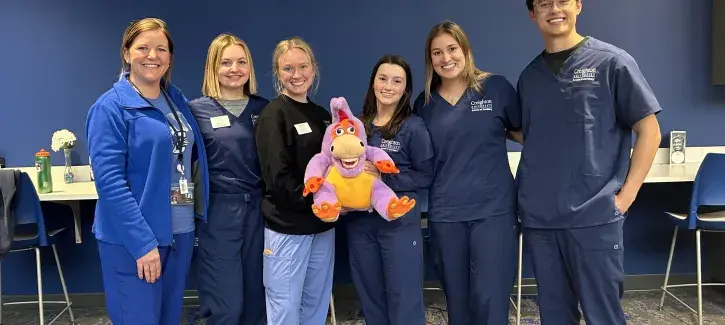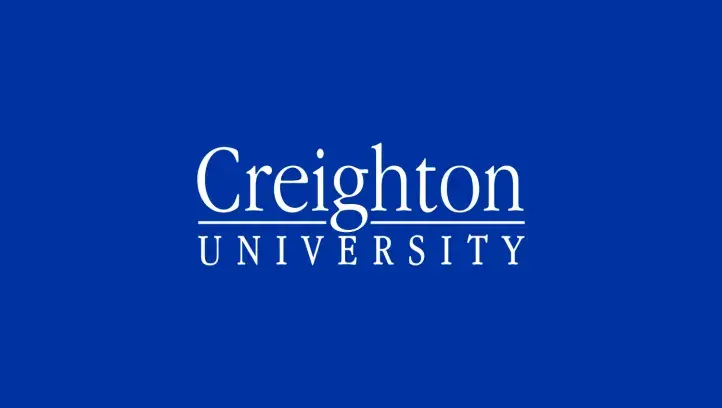
Creighton at Highlander Hosts Community Events

This spring, Creighton at Highlander team hosted a number of events to benefit the community.
Creighton University Highlander launched a “Meet the Doctor” panel series in April. This series aims to create a relaxed space for community members to hear directly from healthcare providers about key health topics and for providers to learn about the community’s concerns. The first panel, held April 17, focused on cancer screening provided insights on early detection and screening options. Kristen Gerjevic, MD , MPH, assistant professor of obstetrics and gynecology and medical director, CHI Pelvic Health Center, served as moderator for the panel, which included:
- Paige Harwell, MD, assistant clerkship director and assistant professor of surgery and a breast health specialist and surgeon with CHI Health Breast Health Center
- Aun Shah, MD, assistant professor of medicine and a gastroenterologist with CHI Health
- Candace Giles, DO – an obstetrics and gynecology practitioner with CHI Health Clinic Women’s Health
- Meaghan Shanahan, MD – vice chair of the Department of Obstetrics and Gynecology and assistant professor and obstetrics and gynecology practitioner with CHI Health Clinic Women’s Health
- Erin Gillaspie, MD, MPH – associate professor of surgery and chief thoracic surgeon with CHI Health Clinic — Henry Lynch Cancer Center
- Joan Delto, MD – associate professor of urology and urologist with CHI Health Clinic
In March and April, Creighton School of Dentistry students, faculty, and the Healthy Smiles program presented four free oral health education programs at Creighton at Highlander, addressing basic healthy habits, oral care, molar extractions, and other dental concerns. The students also recorded educational videos for distribution on social media. These collaborative efforts are crucial for building trust and establishing a strong presence within the community. Although the turnout may not have been large, maintaining a consistent presence is essential for fostering long-term relationships and trust. By continuing these efforts, we hope to ensure that the community feels supported and informed about their oral health. Implementing this program at Creighton’s Highlander space has been a significant achievement for the team, bridging faculty and students with the community.
The Highlander team also hosted a celebration in April with participants of the seven listening sessions held last fall as part of the Community Health Needs Assessment. Residents of North and South Omaha came together to view the results from the sessions during a gallery walk April 29. The gallery showcased insights into community health trends and issues and the data that informs public health decision-making. The gallery also focused on specific community health concerns and explored opportunities for collaboration. This event highlights the importance of staying engaged in community health improvement plans and fostering ongoing dialogue to address local health challenges.
In March, the team hosted a "Know Your Rights Train the Trainer" event, presented by the Center for Immigrant and Refugee Advancement. Six organizations representing various communities participated in the training. The presentation covered essential topics regarding individual rights and how to create a safety plan. Feedback from participants was overwhelmingly positive, with many appreciating the clarity and relevance of the information provided.
Earlier this year, the team hosted the joint Creighton University and University of Nebraska Medical Center United in Trust Symposium, supported by the AAMC Trustworthiness grant. The event, which followed data coding and Speak Freely Sessions with community organizations, aimed to enhance trust and community health. The Speak Freely sessions’ goals were to provide a safe space for sharing experiences, align these experiences with trustworthiness principles and develop recommendations for improving trustworthiness. The initiative sought to empower community connections and encourage institutions to adopt more authentic trust-building practices.




